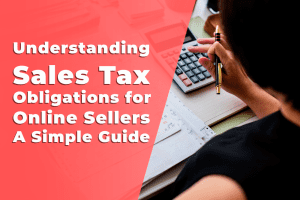1. Home Office Deduction
If you run your business from home, you might qualify for the home office deduction. This allows you to deduct a portion of your home expenses, such as rent or mortgage, utilities, and even maintenance, as long as the space is used regularly and exclusively for business. To calculate the deduction, you can use either:- The simplified method, which offers a flat $5 per square foot of office space, up to a maximum of 300 square feet.
- The actual expense method, which allows you to calculate your home office percentage of total household expenses.
2. Business Vehicle Expenses
Do you use your personal car for business purposes? If so, you can deduct the costs associated with business use, such as mileage, gas, maintenance, and insurance. The IRS offers two ways to claim this deduction:- Standard mileage rate, which allows you to deduct a set amount per mile driven for business (in 2024, it’s 65.5 cents per mile).
- Actual expense method, where you track and deduct all business-related vehicle expenses.
Make sure to keep a log of your business mileage and receipts for any relevant expenses.
For more details, refer to the IRS guide: Publication 463 – Travel, Gift, and Car Expenses.
3. Office Supplies and Equipment
All the essential items you use to run your business, from computers and printers to paper and pens, are deductible. These office expenses fall under “necessary and ordinary” business expenses, meaning that as long as they are directly related to your business, they qualify for a deduction.
Office equipment like computers or larger purchases can be deducted all at once or depreciated over time, depending on your tax strategy.
Tip: Save all receipts and invoices for office supplies to document your deduction.
4. Business Meals
You can deduct 50% of the cost of meals related to business activities, whether it’s meeting with a client or traveling for work. For the deduction to apply, the meal must serve a business purpose, and you should be able to document the event’s details, such as the client’s name, business discussed, and the location.
To make things easier, always keep receipts and jot down notes about the meeting.
For more details, refer to the IRS guide: Publication 463 – Travel, Gift, and Car Expenses.
5. Employee Salaries and Benefits
If you have employees, the wages, salaries, and bonuses you pay are deductible as long as the payments are reasonable and related to their work. In addition, employee benefits such as health insurance, retirement plans, and educational assistance can also be written off as a tax deduction.
Self-employed business owners can also deduct health insurance premiums, as long as they aren’t eligible for coverage through a spouse’s employer.
You may also like to read:
Top Tax Deductions & Sales Tax Tips for E-commerce Businesses
Managing taxes for an e-commerce or online business can be challenging, but with the right approach, you can take full…
Read More

6. Retirement Contributions
Contributing to a retirement plan as a business owner can offer significant tax savings. If you set up a retirement plan, such as a SEP IRA or SIMPLE IRA, you can deduct contributions made for both yourself and your employees. This is a great way to lower your taxable income while preparing for the future.
Pro Tip: The earlier you set up a retirement plan, the greater your savings over time.
For details on retirement options, check out the IRS’s guide: Retirement Plans for Small Businesses.
7. Professional Services
Hiring professionals like accountants, lawyers, or consultants to help with business operations? The fees paid for professional services are fully deductible as ordinary and necessary business expenses. These services help you stay compliant and improve your business efficiency, so it’s a win-win.
For example, hiring an accountant to handle your tax returns is not only a smart move but also qualifies as a deduction.
8. Marketing and Advertising
Spending money on marketing, such as digital ads, website development, business cards, or promotional materials? These expenses can be deducted in full. Whether you’re paying for social media ads, search engine marketing, or printed flyers, the cost to promote your business qualifies as a business expense deduction.
This deduction also includes any costs associated with maintaining your business website or paying for email marketing services.
9. Rent on Business Property
If you rent office space, a warehouse, or retail space, the rent payments are fully deductible. This applies whether you lease the space long-term or rent it temporarily for business purposes.
In addition to rent, if you lease equipment such as machinery, computers, or other business tools, those lease payments are also deductible.
10. Travel Expenses
When traveling for business, many expenses are deductible, such as airfare, hotel stays, car rentals, and even dry cleaning. These deductions apply to business-related trips where the primary purpose is business, including attending conferences, meeting with clients, or scouting new locations.
Make sure to keep records of travel details, including receipts and purpose of the trip.
For more details, refer to the IRS guide: Publication 463 – Travel, Gift, and Car Expenses.




